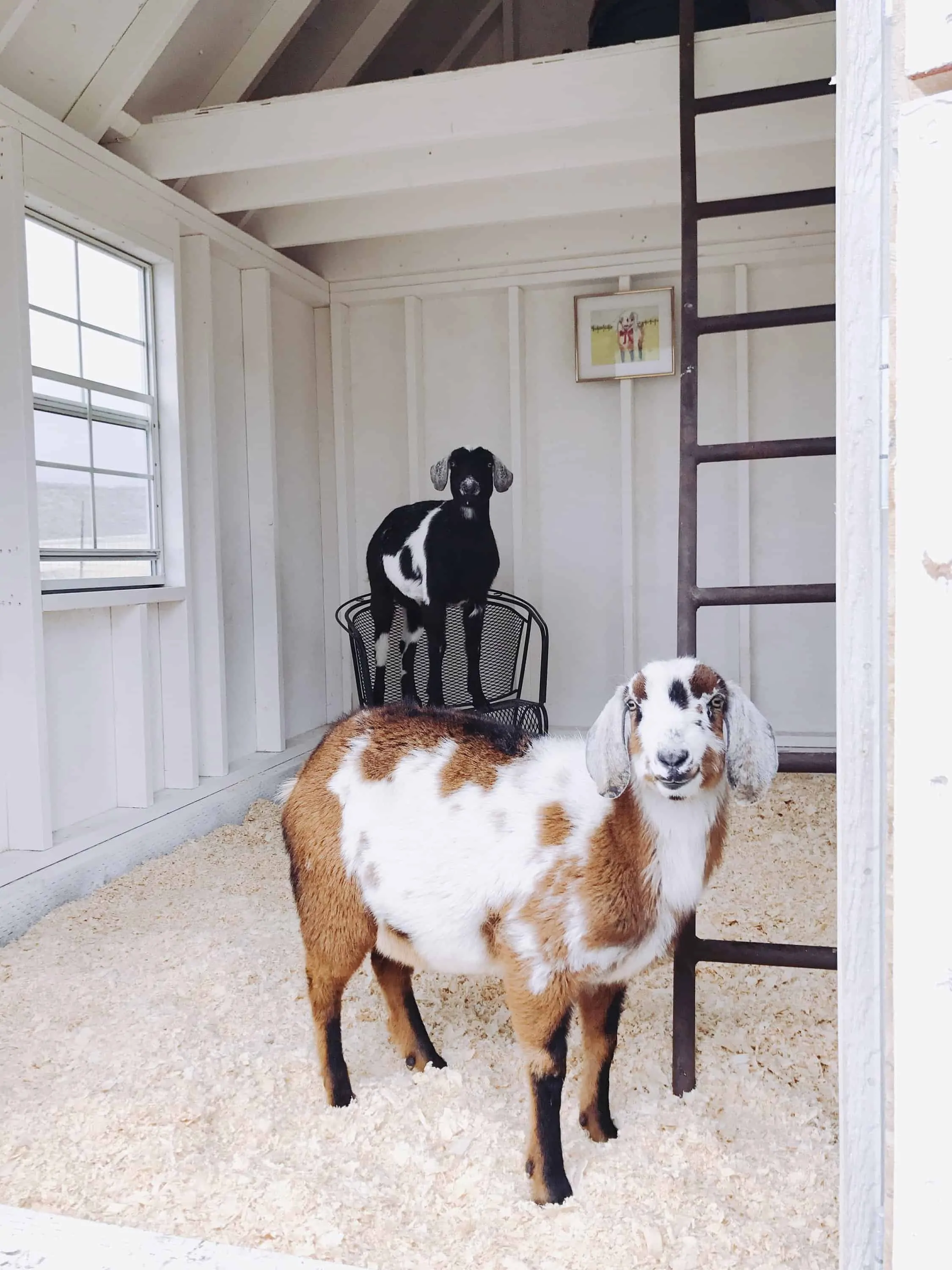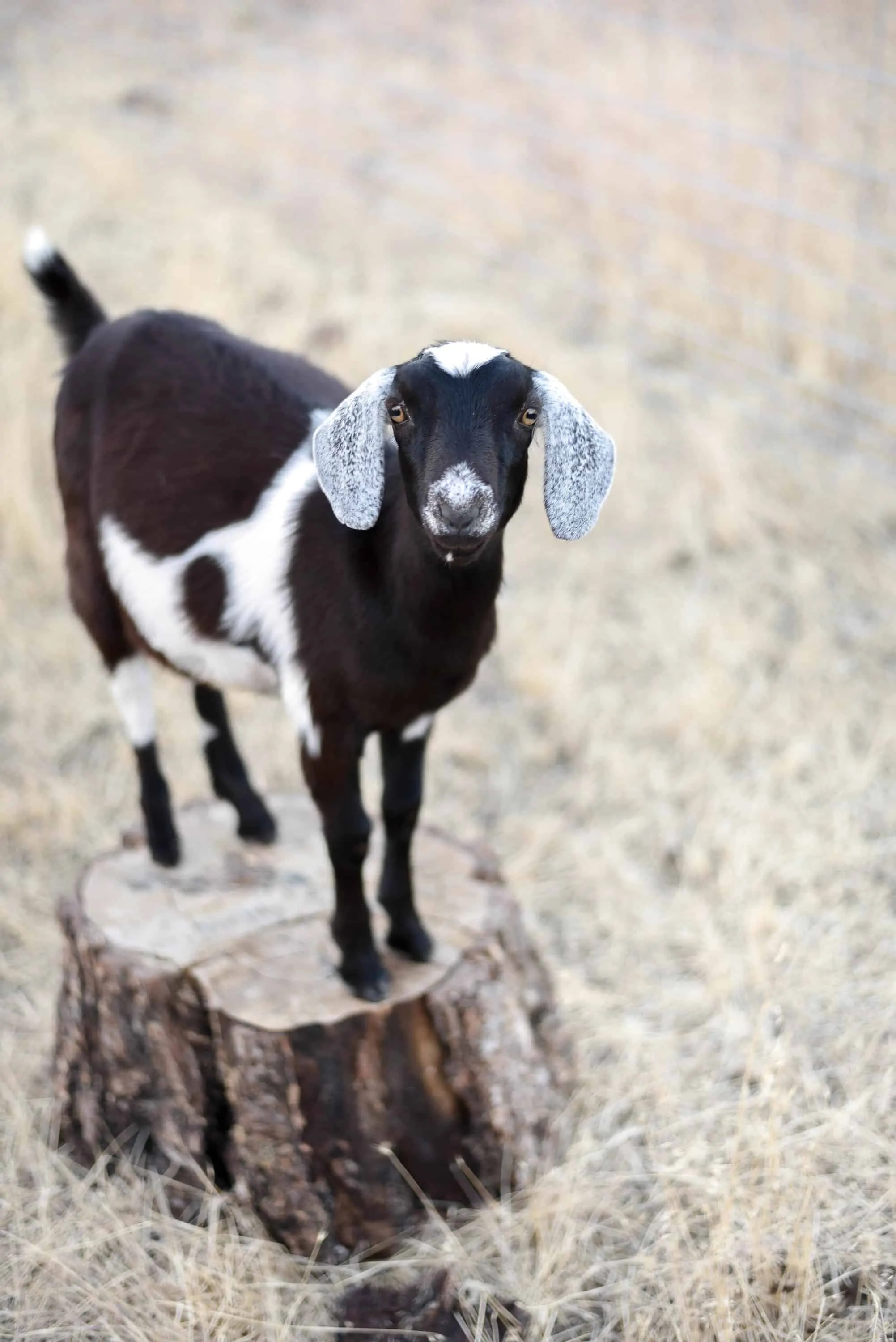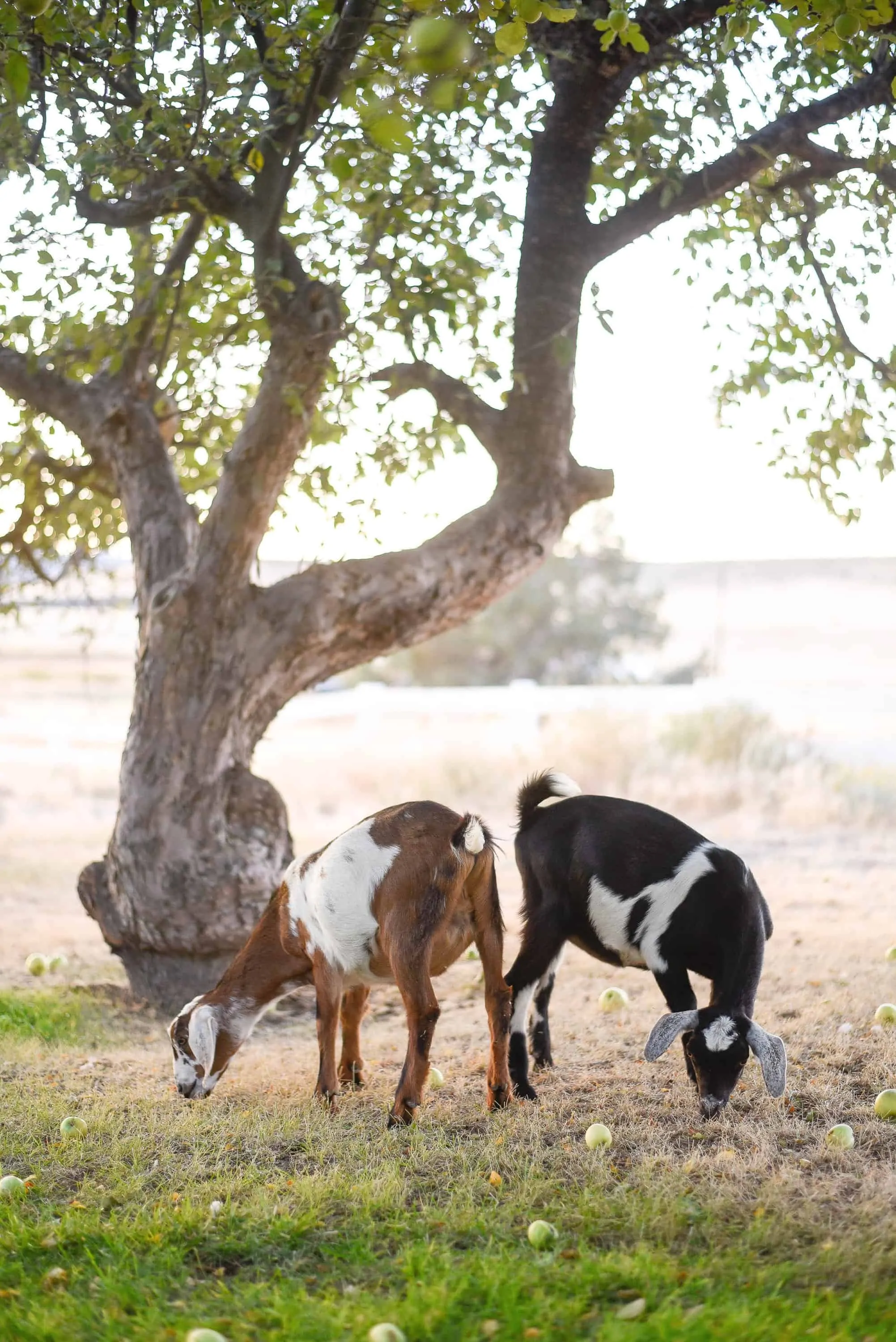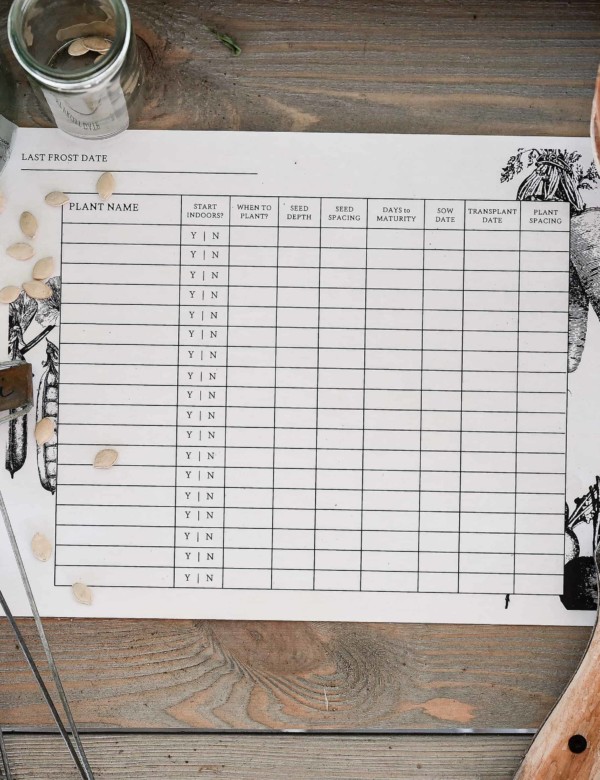Copper is a mineral necessary for healthy bone growth, proper nervous system function, and hair pigmentation. However, too much copper can result in copper poisoning (toxicity). It is currently unknown how much copper goats need, and the proper amount varies from goat to goat.

What Is Copper Poisoning?
Copper toxicity is a result of too much copper in the diet. Typically due to ingestion of something not intended for the goat such as chicken feed, cattle mineral, or pig mineral.
Table of Contents
While copper is a necessary metal for proper organ functions in goats, an overdose of copper is toxic. This is true for humans as well. Copper deficiency is a real problem for goats, especially pregnant does, and can result in death; on the flip side, copper toxicity is when there is too much copper in the diet. As with everything in life, balance is key.
Copper poisoning occurs primarily in sheep; however, goats are also at risk. Goats need much more copper than sheep, which is why goat feed contains added copper, but it’s usually not found in sheep mineral/feed. The amount of copper is the primary difference in goat feed vs sheep feed.

Copper found in hay and soil can be sufficient to provide the right amount of copper needed in a goat’s diet, however, most goat caretakers have experienced copper & mineral deficiency, and copper poisoning is less common. Copper poisoning causes liver necrosis and results in hemolysis which happens when the blood turns copper colored, also known as hemolytic crisis. DMV360 states:
“Copper is a strong oxidizing agent. It binds to proteins in the liver cells and is stored in lysosomes within hepatocytes. As long as the copper remains stored in lysosomes it does not cause tissue damage. Copper can, however, be spontaneously released or released at times of stress, including shearing, weather extremes or transport. Chronic copper poisoning is, therefore, often described as a stress-related disease.”
If your goat is suffering from copper poisoning, a tell-tale symptom is copper colored urine, with a sweet smell. You may confuse this symptom for bloody urine from urinary calculi; however, a simple test will determine if blood is in the urine. If not, your goat is most likely in hemolytic crisis.

How Do Goats Get Copper Poisoning?
Goats can suffer from copper poisoning when too much copper is ingested in their diet. Things like: chicken feed, copper supplements, mineral salts, and anything else with added copper to it.
Copper is stored in the liver, but when too much copper is consumed, the liver can rapidly release the copper causing copper poisoning. This generally happens during times of stress (weather, shearing, etc…). Do NOT allow your goats to eat chicken feed, minerals not specifically designed for goats, or any other feed with added copper in it that is not formulated for goats.
How to Treat Copper Poisoning
Unfortunately, there isn’t much that can be done once a goat is showing symptoms such as colored urine. However, we experienced success with a simple shot of Vitamin C. This worked well for us, and I would suggest this be your first attempt at treatment.
There are three prescription drugs available, but they are quite expensive and hard to come by: D-penicillamine, Methylene blue, and Sodium thiosulfate. Before treating a goat with anything, make sure to consult an experienced goat vet!

What Is A Copper Bolus?
I mentioned that copper is a necessary part of the goats diet, and sometimes goats suffer from copper deficiency. As if you didn’t have enough to worry about! You don’t want to feed your goat so much copper that they are poisoned, but they also should have enough for proper bone growth, proper nervous system function, and hair pigmentation.
If you suspect your goats are copper deficient, you can administer a copper bolus. Read more about that here. Before you supplement with a copper bolus, make sure to consult an experienced goat vet to determine if a bolus is necessary. Usually, you will only need a goat formulated mineral specific cot your area, and a copper bolus isn’t necessary. If you’re looking for more information about goats, I created a guide with all the supplies you’ll need to raise goats. You can read it here!
Sources & More Information About Copper Toxicity in Goats
deficiency & toxicity | overview of copper poisoning | toxicity in goats & sheep




I’m so happy they are going to be ok. Don’t EVER apologize for loving your animals. If more people felt that way we’d have a lot less animal abuse. I love your blog!
I am glad to hear your little ones will be okay. You are very lucky, indeed. Did you know both your goats (Buckwheat & Elderberry) are named after plants that are also toxic to them? I am a toxicologist and it is important to remember that goats are not the ‘cast iron stomach’ beasts that people think they are. There are actually MANY natural plants also that can kill them – including any form of nightshade leaves or plants (tomatoes included), Ivy, Lily of the Valley, clover, milkweed, azaleas, pine trees, allspice, wild parsnip, Ponderosa pine needles, buckwheat, cherry leaves and stems, elderberry, hemlock, larkspur, Hemp and Marijuana (for those in states where it is legal to grow), chokecherry, and the list goes on and on.. Please do your homework before getting ANY animals (especially livestock) and if you aren’t sure or cannot find good information, speak to a Toxicologist or a Veterinarian BEFORE getting them! Hope they continue to thrive! Best of luck!